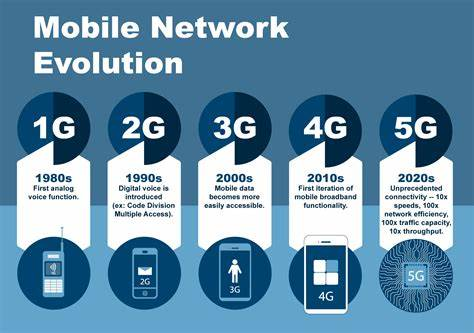The arrival of 5G technology represents a transformative opportunity for Guyana’s economic development and digital infrastructure. As the global race to adopt 5G accelerates, Guyana must position itself to harness its benefits, which include faster internet speeds, lower latency, and enhanced connectivity. For a country that is experiencing rapid economic growth due to its burgeoning oil industry, 5G can provide the foundation for innovation across key sectors such as healthcare, education, agriculture, and energy.
The Potential of 5G in Guyana
5G offers data speeds up to 100 times faster than 4G and supports greater device connectivity. This capability is critical in modernizing industries. For example, in healthcare, 5G can enable telemedicine platforms to function more effectively by supporting high-quality video consultations and remote diagnostics in real-time. Similarly, the agricultural sector, which is vital to Guyana’s economy, can benefit from smart farming solutions powered by 5G. Precision irrigation, soil monitoring, and crop surveillance become possible with the low-latency communication that 5G provides.

The oil and gas industry, a cornerstone of Guyana’s economic future, can also leverage 5G for improved operational efficiency. Real-time data analytics, automated drilling systems, and enhanced safety measures can all be realized with the network’s capabilities.
Challenges to Implementation
Despite its promise, deploying 5G in Guyana is not without challenges. Infrastructure development is a critical hurdle. 5G networks require dense installation of base stations and a robust fiber-optic backbone, which necessitates significant investment. Moreover, rural and hinterland areas with limited connectivity may risk being left behind, exacerbating the digital divide.
Another concern is the high cost of 5G-compatible devices and services, which could limit adoption among lower-income populations. Additionally, cybersecurity must be a priority, as the increased connectivity of devices poses risks of data breaches and cyberattacks.
Steps Forward
To successfully implement 5G, the government, private sector, and international partners must collaborate. Policymakers should create an enabling environment through incentives for telecom providers, funding for infrastructure, and regulations to ensure affordable access. Public awareness campaigns can educate citizens on how 5G can enhance their lives, building trust and encouraging adoption.

With strategic investments and inclusive policies, 5G has the potential to drive Guyana’s technological advancement, ensuring that its citizens and industries can compete on a global stage. As Guyana enters this new frontier, it must aim for equitable access and sustainable growth.